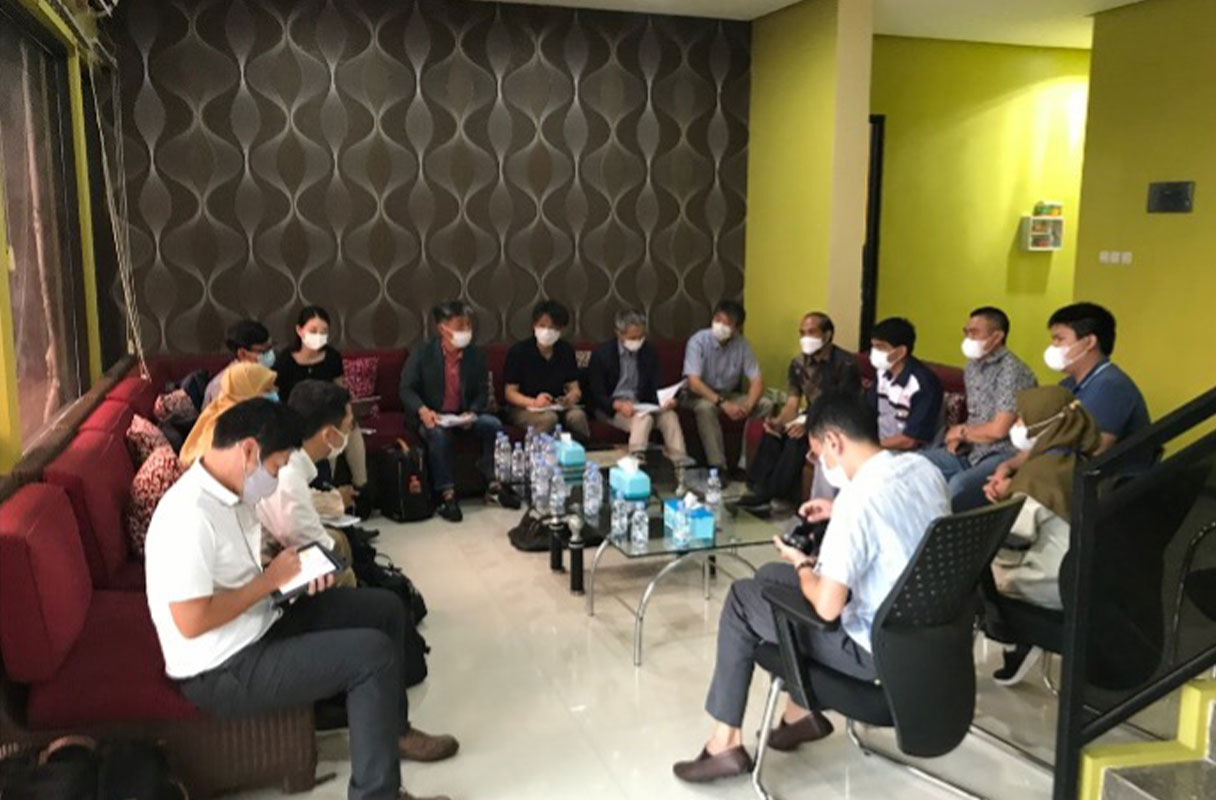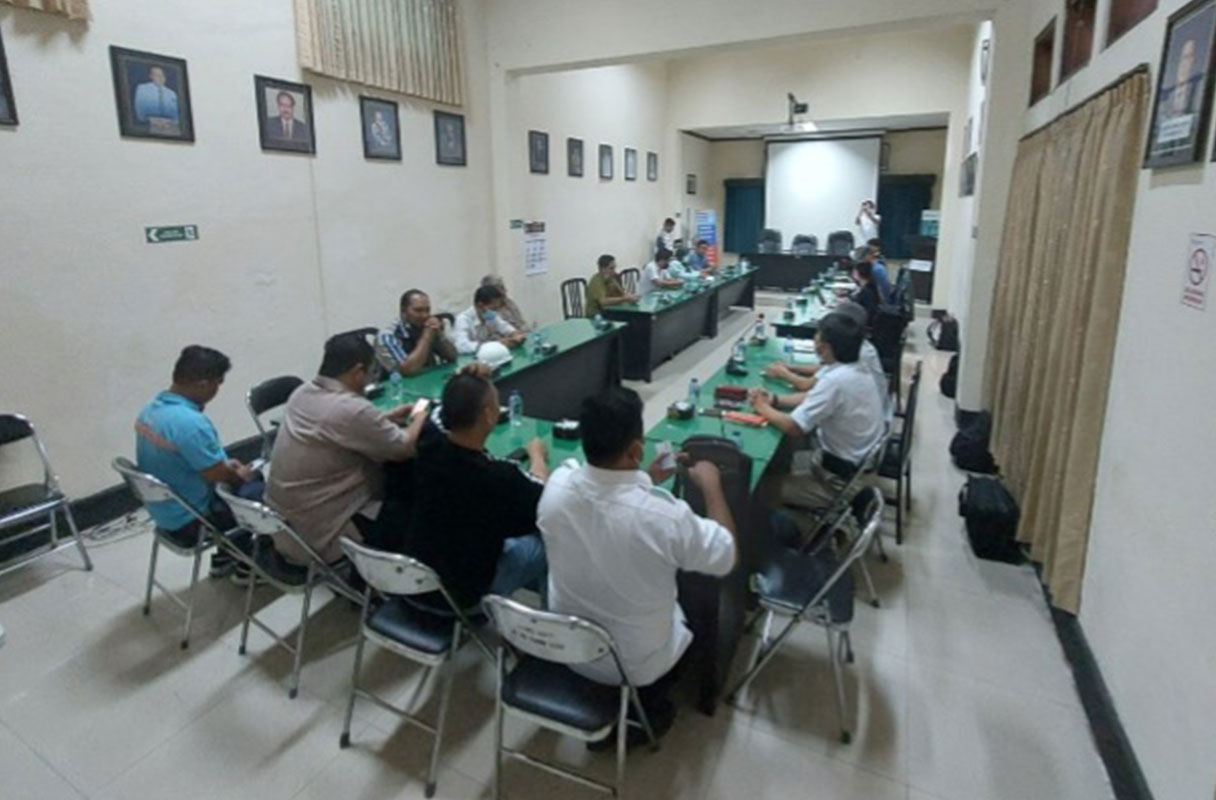Along with society
Human Rights Due Diligence Related to the Procurement of Umami Seasonings

The Ajinomoto Group operates globally. We value highly sustainable raw material procurement and conduct human rights due diligence*1, an international issue, based on international standards related to human rights issues in the supply chain.
In Indonesia, one of the countries where we operate, we use sugarcane as the main ingredient of the umami seasoning AJI-NO-MOTO®. We focused our due diligence on the sugarcane supply chain and held dialogues with farmers, sugar mills, and other people involved.
- *1A process to identify the risk of people involved in the company's business activities being harmed by forced labor, child labor, or engaging in hazardous labor, as well as a method to formulate and implement appropriate measures in response.
The Ajinomoto Group Human Rights Due Diligence Process

Risk of human rights violations in the supply chain
The risk of unintentional human rights violations exists throughout the series of supply chains involved in the procurement of raw materials, the manufacture and sale of products, and the consumption of products by consumers. Despite the 2011 agreement by the UN Human Rights Council on the Guiding Principles on Business and Human Rights regarding respect for human rights in corporate activities, reports estimate that 160 million children were subject to child labor in the world in the year 2020, the first increase since the year 2000. The 2021-2022 report indicated that the number of victims of forced labor worldwide is an estimated 27.6 million, also an increasing trend*2.
The Ajinomoto Group, which operates in 36 countries and regions, conducts human rights due diligence globally. We perform due diligence based on Group Shared Policy on Human Rights*3 and Group Shared Policy/Guidelines for Suppliers to ensure appropriate and consistent efforts to address human rights as a corporation. We assess countries where human rights violations are likely to occur in the supply chain and factors related to our five priority raw materials. As part of these assessments, we held dialogues*4 with stakeholders in the supply chain regarding the procurement of shrimp and chicken in Thailand in 2019 and coffee beans and sugar cane in Brazil in 2021(Regarding Brazil, online dialogue due to the impact of COVID-19).
- *2Child Labour: Global estimates 2020, Trends and the Road Forward, UNICEF (United Nations Children's Fund) and International Labour Organization (ILO).
Forced Labour and Forced Marriage, ILO, Walk Free and the International Organization for Migration - *3Group Shared Policy on Human Rights
- *4Human Rights Due Diligence Impact Assessment Report 2019 Thailand

Country human-rights risk impact assessment for supply chains in the sugarcane industry and the coffee industry Survey Report: Brazil
Dialogues With Supply Chain Stakeholders in Indonesia
Indonesia is one of the major producers of umami seasoning AJI-NO-MOTO®, one of the Ajinomoto Group’s founding products. We procure the main ingredient, sugarcane molasses, from within Indonesia. As a result of country-specific human rights risk assessments conducted in 2022 using external data, we identified child labor, forced labor, and occupational health and safety as human rights risks in the sugarcane industry in Indonesia. We performed inspections and checked for human rights risks through on-site visits and dialogues in February 2023. This was the first time for the Ajinomoto Group to assess human rights in Indonesia (sugarcane). Given the sensitive nature of human rights violations, we conducted inspections and checked for risks while being conscious of building relationships of trust.*5
The Ajinomoto Group Commitment to Dialogue in Accordance with International Standards
The Ajinomoto Group emphasizes dialogue in our pursuit of human rights due diligence.
The Ajinomoto Group human rights due diligence activities in Indonesia cover a wide range of categories. These categories include molasses trader, sugar company, sugarcane farmers, sugarcane farmer association, and local employees of PT Ajinomoto Indonesia, and we believe that dialogue methods required by international standards are effective for sharing and improving issues, as well as for co-existence and co-prosperity as a good and trustworthy partner.
When conducting local dialogues, we were particularly conscious of sharing a common understanding by communicating the international standards on respect for human rights and the relevant Ajinomoto Group philosophy. In addition, we conducted dialogue with the individuals affected regarding any issues at work and how they deal with problems. We also we checked living environments, including workplaces, schools, and hospitals, in an effort to understand the local situation. While we identified no serious problems in the supply chain in Indonesia (sugarcane) where we held dialogues, such dialogues are not the end of the process. We will continue to conduct inspections and check situations on the ground.





Addressing Human Rights Challenges Toward the Year 2030
The Ajinomoto Group will continue to emphasize direct dialogue with stakeholders based on international standards and Ajinomoto Group policies. At the same time, we will coordinate with experts in human rights issues, engaging in initiatives to respect the human rights of all stakeholders across our value chains.
